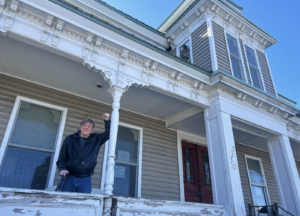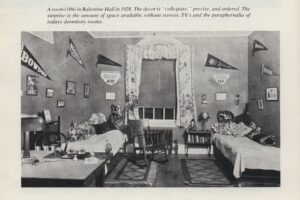At the University of Maine, student organizations are working together to help the Syrian refugees who have fled their homes. The International Student Association (ISA) and Muslim Student Association (MSA) have partnered with the non-profit organization Helping Hands for Relief and Development (HHRD), and initiated a campus-wide clothing drive. MSA advisor Hina Hashmi, who graduated from UMaine in May 2015, proposed the idea of a clothing campaign at the UMaine campus. This August, the Islamic Center of Maine in Orono organized a clothing drive with HHRD and according to Hina Hashmi, advisor of MSA, it has been a success.
“We have three or four Syrian families in our community, and some still have relatives in Syria whom they are unable to see and it is very difficult to contact them,” Hina Hashmi said.
“No one can really ignore this urgent issue in the world right now, it is the biggest refugee crisis since World War II,” Fazeel Hashmi, secretary of MSA, said. “It is incredible to see ISA and MSA get involved in humanitarian efforts and dive into some pretty incredible projects.”
In March of 2011, in the wake of the Arab Spring, Syrian people marched in a peaceful protest against their President, Bashar al-Assad’s, government. Since then, peaceful protests have escalated to ongoing military sieges, armed rebellions, bombings and killings of civilians. The United Nations confirmed the usage of chemical weapons in the 2013 Ghouta attacks in the suburbs of Syria’s capital Damascus. As of Oct. 4, 2015, there are more than four million registered Syrian refugees, according to the United Nations High Commissioner for Refugees (UNHCR).
The majority of Syrian refugees are fleeing to the neighboring countries of Turkey, Jordan and Lebanon. Within the last four years, an immense number of refugees fled the civil war by crossing the Turkish border, making Turkey the biggest refugee-hosting country in the world with 1.9 million registered Syrian refugees, according to the UNHCR.
There are 22 operating refugee camps in Turkey which accommodate 210,000 refugees. The rest either try to make a living in the cities, or with the hopes of find a better future in Europe. An overwhelming amount of refugees attempt dangerous journeys to Europe across the Mediterranean and Aegean Seas. Not all of them make it across alive due to drowning from overcrowded plastic inflatable boats. Those who do make it through still face challenges such as lack of resources and shelter.
The donated clothes which will be sent to the HHRD office in Jordan, where they will be distributed among the Syrian refugees in Jordan, Lebanon and Turkey. In order to cover the cost of the shipment of containers, ISA and MSA are accepting monetary donations.
“The crisis is sad,” Waleed Rahmatullah, vice president of MSA, said. “The worst part about this is that the efforts we are doing are similar to the efforts in response to natural disasters.”
On April 25, Nepal, and parts of India and China were hit by a magnitude-7.8 earthquake. The earthquake and its aftershock killed more than 8,000 people and injured nearly 17,000 more, according to the UNHCR. The Nepalese community at UMaine came together to spread awareness and raise donations for aid and relief for the Nepalese victims.
“The Syrian crisis from the beginning was a hundred percent man made, which means that it was a hundred percent preventable. If prevented, we would not need to be doing this [clothing campaign] now,” Rahmatullah said. “Being involved in the clothing drive made me realize how fortunate I am to have shelter, and safety. This could’ve been us, could’ve been our family.”
“We as humans have the responsibility to help other humans in times like this,” Akbar Mahdavi Shakib, vice president of ISA, said.
Mahdavi Shakib was born and raised in Iran, and is pursuing his Ph.D. in chemistry at UMaine.
“War is a horrible thing, and sadly, those who suffer the most from it are people who are not involved in it – the innocent civilians,” Mahdavi Shakib said.
As part of raising awareness of the clothing drive, MSA hosted last week’s Coffee Hour at the Union.
“Refugees are in need of warmer clothes,” Mahdavi Shakib said. Since the weather is getting cooler in that region, donations of new or slightly used jackets, sweaters, coats and other warm clothes are highly encouraged.
Donation boxes for clothes can be found in residence halls, in the Office of International Programs and in the Union, from 10 a.m. to 2 p.m. The campaign is running until Friday, Oct. 23.








